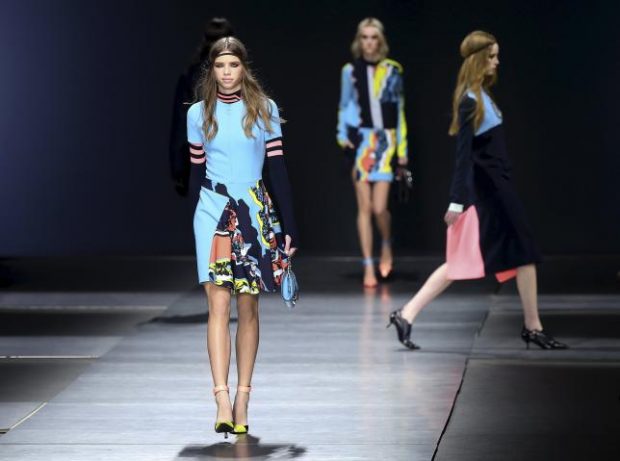Italy and Iran have signed a fashion deal

Italy on Wednesday became the first European country to take steps to help its fashion industry build a stronger presence in Iran following the lifting of Western sanctions.
The two countries signed an agreement during a two-day visit by Italian Prime Minister Matteo Renzi with a delegation of business leaders to increase trade between Italy and Iran and reinforce industrial cooperation.
The deal was signed by the National Textiles and Fashion Association Sistema Moda Italia (SMI), which represents a sector worth more than 52 billion euros (41 billion pounds) in revenues, and its Iranian counterpart the Tehran Garment Union (TGU).
It aims to cut red tape and make it easier for Italian companies to obtain the TGU licence required to operate in Iran.
Some analysts estimate the oil-rich Islamic Republic of nearly 80 million people has more than 3 million high net worth individuals who are major and regular buyers of luxury goods.
“Iran could be an interesting expansion market, probably worth about 2 per cent of the global luxury market, once developed,” Exane BNP Paribas analyst Luca Solca said.
Renzi was accompanied by some 60 business leaders from sectors including energy, railways and defence. They pledged billions of euros in credit lines and guarantees, in a broader effort to establish a strong foothold in Iran.
“Iran represents a market with great opportunities and I am certain that Italian companies will be able to grasp them,” SMI Chairman Claudio Marenzi said.
The sanctions on Iran over the past decade did not apply to cosmetics and many other consumer goods, but they made it difficult for European companies to own stores in Iran.
IRAN CHALLENGES
Setting up businesses in Iran is also no easy task, executives and consultants say, due to a lack of appropriate retail infrastructure, high tariffs and banking restrictions.
A lack of enforcement of international trademark protection agreements also means Iran is flooded with counterfeits.
Italian firms appear to have adopted a more proactive attitude than their French luxury and fashion rivals.
In February, Florence-based fashion house Roberto Cavalli opened its first shop in Iran, in the footsteps of leather goods maker Piquadro and men’s shirt company Camicissima.
Versace is due to open a flagship boutique in Tehran soon, in franchise with a local commercial partner.
Several French groups, however, including Chanel, Gucci owner Kering and LVMH’s, have been adopting a “wait and see” attitude until the evolution of Iran’s international relations became clearer.
Some French brands such as the family-controlled handbag maker Longchamp and crystal maker Lalique, are looking for distribution partners but have no plans to open boutiques.
“For us Iran is a new region to conquer,” said Lalique Chief Executive and controlling shareholder Silvio Denz, who has been opening new markets for the brand’s crystal jewellery and home wear items over the past decade. One of the first big French companies to invest directly in Iran is LVMH’s cosmetics retailer Sephora. It is in talks to open two to three shops in Teheran by the autumn, in partnership with an Iranian partner and the Middle Eastern luxury goods distributor Chalhoub, a source close to LVMH told Reuters.
LVMH and Chalhoub have declined to comment.
How to submit an Op-Ed: Libyan Express accepts opinion articles on a wide range of topics. Submissions may be sent to oped@libyanexpress.com. Please include ‘Op-Ed’ in the subject line.
- Western Powers Welcome Libya’s Municipal Election Results - November 26, 2024
- Libya concludes presidency of MENWMDFZ - November 26, 2024
- LAIP seeks to reclaim major agricultural investment in Guinea - November 26, 2024


